Railways: The Making of a Nation - Season 1
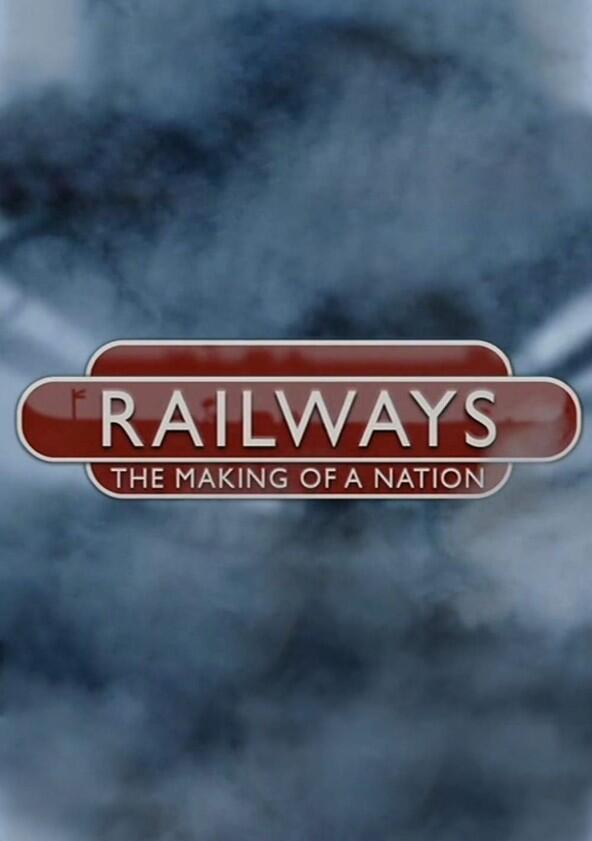
Season 1

Episodes
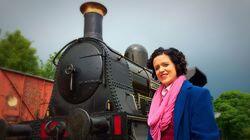
Time
Historian Liz McIvor explores how Britain's expanding rail network was the spark to a social revolution, starting in the 1800s and continuing through to modern times. A fast system of transportation shaped so many areas of our industrial nation - from what we eat to where we live, work and play. The railways generated economic activity but they also changed the nature of business itself. They even changed attitudes to time and how we set our clocks. Our railways may have reflected deep class divisions, but they also brought people together as never before, and helped forge a new sense of national identity.
This episode looks at how you organise a rail network in a country made up of separate local time zones and no recognised timetables. Before the railways, our country was divided and local time was proudly treasured. Clocks in the west of the country were several minutes behind those set in the east. The railways wanted the country to step to a new beat in a world of precise schedules and timetables that recognised Greenwich Mean Time. Not everyone was keen to step in line, and some complained about the new world of one single time zone and precise schedules.
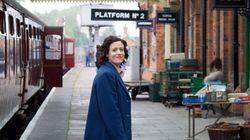
Capitalism and Commerce
Episode two focuses on Capitalism and Commerce. The railways stimulated great changes to the nation's economy and they also changed the way business was done. This encouraged a new generation of mechanical engineers, skilled workers, managers and accountants. Originally, local railway entrepreneurs viewed trains as vehicles for shifting raw materials, stock and goods, but they soon discovered that there was money to be made from transporting people also.
Places such as Derby became known as ‘railway towns'. Derby was central to the new network and home to the engineers who made and maintained locomotives and carriages. However, the railway ‘boom' of the 1840s also came with a ‘bust'. A new age of middle-class shareholders who invested in the railways soon discovered what goes up can also go down. In addition, there were stories of railway rogues and dodgy dealings. Railway companies recovered from the crash and continued to develop as complex national business organisations capable of building great structures such as the Ribblehead Viaduct in Yorkshire and St Pancras Station in London.

The Age of Leisure
The idea of excursions to distant places became popular from the 1840s onwards, as people began taking day trips and seeing parts of the country they had never seen before.
However, it wasn't all sun, sea and sand - some excursion trains were set up to satisfy the public's desire to witness public executions and bare-knuckle prize fighting; other lines transported people to enjoy horse racing and sporting events.
Thousands visited resorts, spa towns and the coast, and a new wave of Victorian tourists spent their money on holidays and visited hotels at train stations and beyond. The ultimate experience was often to head to the hills and sample clean air, far away from the industrial grime and pollution, and working-class northerners now had access to the beautiful Lake District.
Historian Liz McIvor explores how Britain's expanding rail network was the spark to a social revolution, starting in the 1800s and through to modern times. A fast system of transportation shaped many areas of our industrial nation - from what we eat to where we live, work and play. The railways generated economic activity but they also changed the nature of business itself. They even changed attitudes to time and how we set our clocks! Our railways reflected deep class divisions, but they also brought people together and helped forge a new sense of national identity.
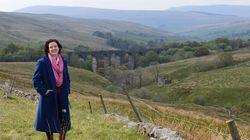
The New Commuters
The railways allowed Brits to live further away from their places of work. Throughout the 19th and 20th centuries the railways encouraged the development of suburbia inhabited by a new type of resident and worker - the commuter.
In some cases new places emerged on the map, simply because of the railways - places like Surbiton and Kingston-upon-Thames. Liz visits nation's largest commuter zone, London and the south east of England. The Victorian rail network was never part of one single grand plan, but it emerged and evolved, line by line, over decades. For today's commuters, work is still going on to build a network that keeps up with their needs.
Historian Liz McIvor explores how Britain's expanding rail network was the spark to a social revolution, starting in the 1800s and through to modern times. A fast system of transportation shaped many areas of our industrial nation - from what we eat to where we live, work and play. The railways generated economic activity but they also changed the nature of business itself. They even changed attitudes to time and how we set our clocks! Our railways reflected deep class divisions, but they also brought people together and helped forge a new sense of national identity.
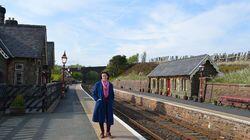
Food and Shopping
The railways changed what we eat and the culinary tastes of the population. Moving produce around at speed was suddenly possible - fresh meat, wet fish, dairy, fruit and veg, were now widely available. And it was in London where arguably the nation's diet changed the most. With a new system of rapid transport it was now possible for the capital to enjoy food supplies from all corners of the nation. Diets improved in terms of the variety and quality of food available. Victorian men and women developed a taste for one particular dish that would be popular with the masses for generations to come - fish and chips.

A Touch of Class
Trains reflected class divisions, with separate carriages for first, second and third class passengers. Yet, seen at the time, they were also bringing people physically closer together.
In the early 1800s Britain was clearly divided between upper, middle and working classes. On the railways they shared the same stations and arrived at the destination at the same time. The trains gradually acted as a great catalyst, mixing the country up as people travelled to regions and places for the first time.
Locations, accents, cultures and fashions were all new. The nation's relationship with royalty also changed. Queen Victoria was now able to venture far and wide across her kingdom and visit more of her subjects. Over time Brits developed a stronger sense of shared identity and culture.
Recently Updated Shows

Poppa's House
Poppa's House revolves around a legendary talk radio host and happily divorced "Poppa" who has his point of view challenged at work when a new female co-host is hired, and at home where he finds himself still parenting his adult son, a brilliant dreamer who is trying to pursue his passion while being a responsible father and husband.
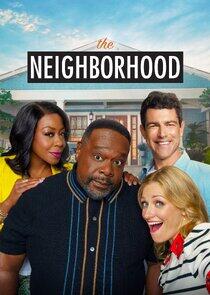
The Neighborhood
The Neighborhood telling about what happens when the friendliest guy in the Midwest moves his family to a neighborhood in Los Angeles where not everyone looks like him or appreciates his extreme neighborliness. When Dave Johnson and his family arrive from Michigan, they're unfazed that their new dream home is located in a community quite different from their small town. However, their opinionated next-door neighbor, Calvin Butler, is wary of the newcomers, certain that they'll disrupt the culture on the block. Dave realizes that fitting into their new community is more complex than he expected, but if he can find a way to connect with Calvin, they have an excellent chance of making their new neighborhood their home.

Death by Fame
Death by Fame goes behind the scenes to uncover the sinister side of fame and reveal the shocking true stories behind the rise, fall and murder of some of Hollywood's most promising stars.

Special Forces: World's Toughest Test
Household names endure some of the harshest, most grueling challenges from the playbook of the actual Special Forces selection process. There are no votes, and no eliminations – just survival. These celebrities, who are so used to being in the spotlight, quickly learn the meaning of "no guts, no glory" – and no glam.

When Calls the Heart
When Calls the Heart is inspired by Janette Oke's bestselling book series about the Canadian West, the series tells the captivating story of Elizabeth Thatcher, a young teacher accustomed to her high society life, who receives her first classroom assignment in Coal Valley, a small coal mining town where life is simple, but often fraught with challenges. Upon arrival, Elizabeth befriends Abigail Stanton, a wife and mother whose husband, the foreman of the mine, along with a dozen other miners, has just been killed in an explosion. The newly widowed women find their faith is tested when they must go to work in the mines to keep a roof over their heads. Set against the wild canvas of a 19th century coal town, Elizabeth will have to learn the ways of the frontier if she wishes to thrive in the rural west on her own.